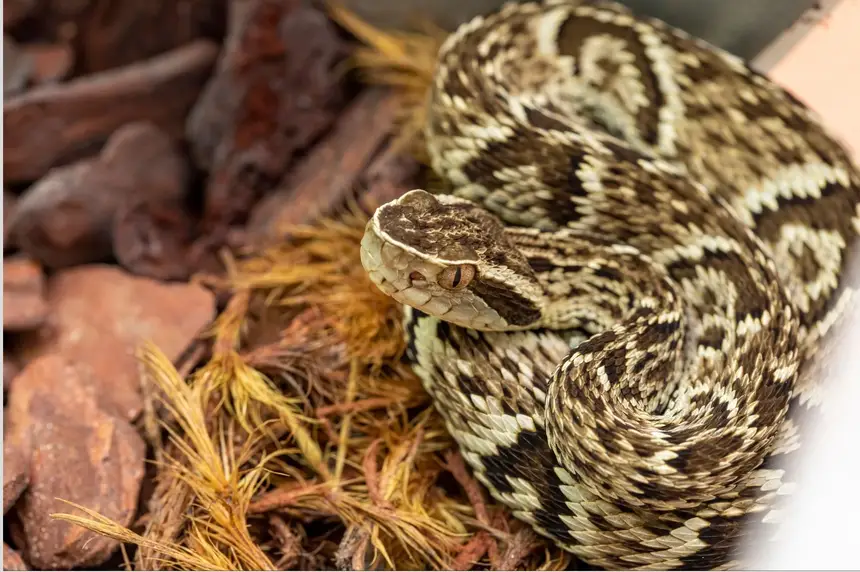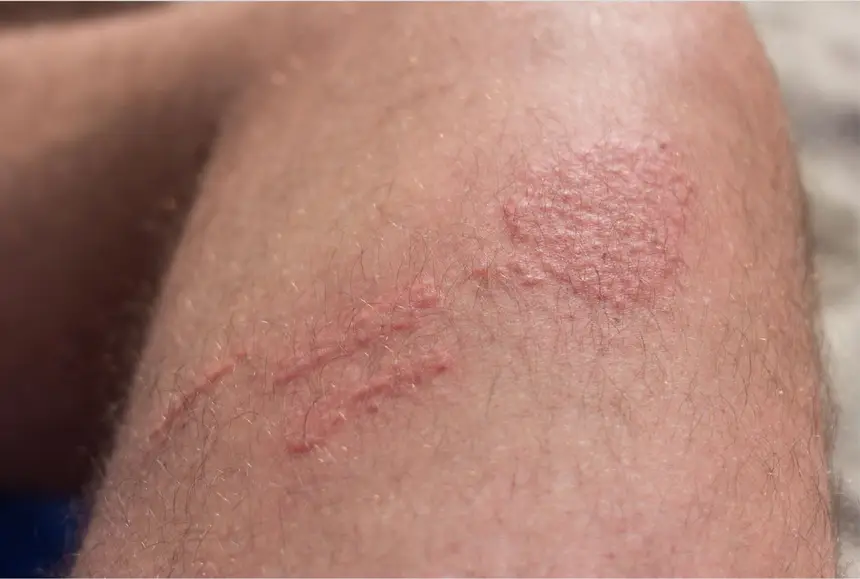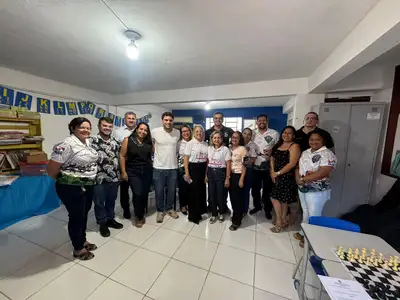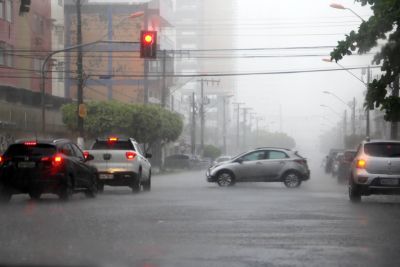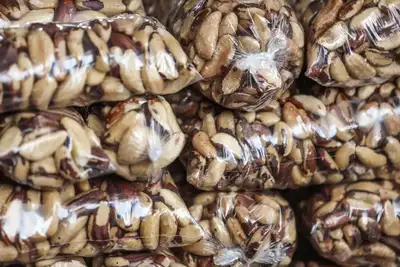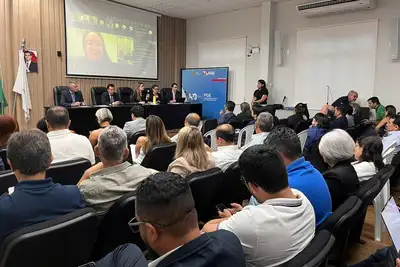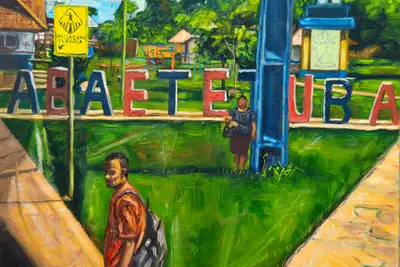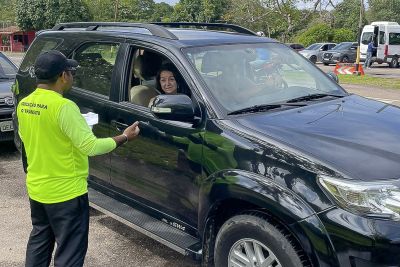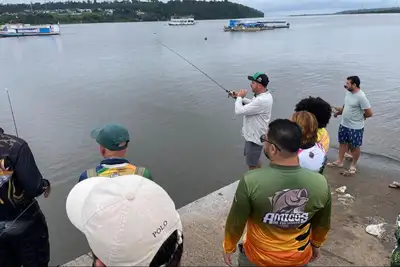Sespa advises the population on prevention of accidents with venomous animals
Essential care during school vacations helps to prevent attacks from snakes, scorpions, spiders, and other animals
The July vacation is approaching, and the population needs to stay alert to avoid accidents with venomous animals in resorts and rural areas. This guidance comes from the State Department of Public Health (Sespa), through the State Coordination of Zoonoses.
"It is in this closer contact with nature, whether at the beach or in the countryside, that accidents with venomous animals occur, most of them involving snakes, spiders, and scorpions," says the state coordinator of Zoonoses, Elke Abreu.
According to data from the Notification of Diseases Information System (Sinan), in 2024, Pará recorded 11,009 accidents involving venomous animals, including 5,078 with snakes, 3,061 with scorpions, 899 with rays, 762 with spiders, 493 with bees, and 124 with caterpillars. This year, so far, there have been 5,053 accidents, including 2,219 with snakes, 1,471 with scorpions, 399 with spiders, 271 with bees, 270 with rays, and 95 with caterpillars.
These data indicate that last year, 46.13% of accidents involved snakes, 27.8% with scorpions, 6.92% with spiders, 4.48% with bees, 1.13% with caterpillars, and 12.83% with other venomous animals.
In 2025, so far, 43.91% of accidents involved snakes, 29.2% with scorpions, 7.92% with spiders, 5.36% with bees, 1.88% with caterpillars, and 11.02% involving other venomous animals.
Snakes - Elke Abreu emphasizes that about 90% of accidents with snakes involve the jararaca species (Bothrops). There were 4,582 accidents recorded in 2024, and 1,994 this year. Next is the surucucu, responsible for 73 accidents in 2024, and 21 this year. In third place is the rattlesnake, with 28 accidents in 2024 and 11 this year. "Therefore, it is necessary to be very attentive when entering forests and places that have been closed for a long time, such as country houses and vacation homes," warns the coordinator.
To avoid accidents with snakes, she advises people to use personal protective equipment (PPE), such as leather gloves, high boots, and gaiters during trails and walks in the woods, when cleaning areas with accumulated garbage, cleaning lots, and gardening services. "Avoid walking barefoot, as wearing boots or gaiters has effective protection in 80% of accidents," guarantees Elke Abreu.
Care must be doubled, especially near rivers and streams. "Children should not be left alone in these places, as in case of an attack, it is important to observe the characteristics of the animals to facilitate medical assistance and the use of antivenom," explains the coordinator.
To prevent accidents around the house, she recommends keeping lots clean and grass trimmed near the residence, avoiding the accumulation of garbage and construction debris.
Spiders and scorpions - To avoid bites from spiders and scorpions, it is correct to carefully observe the workplace and the paths to be taken. "If you encounter venomous animals, move away carefully, avoid startling or touching them, even if they seem dead," warns Elke Abreu.
The coordinator also advises against putting unprotected hands in burrows or holes in the ground, hollow logs, termite mounds, and between spaces in piles of wood or stone, and under rocks.
According to Elke Abreu, in homes that have been closed for a long time, doors and windows should be opened to allow ventilation, and it should be checked for many spider webs or mold on walls and ceilings.
The guidance is to inspect clothing, footwear, bath and face towels, bed linens, floor cloths, and rugs before using them; move beds and cribs away from walls and not leave sheets or blankets touching the floor. "When moving furniture, it is important to wear closed shoes and thick gloves," she informs.
Increased caution – The ray is a venomous animal whose venom has no antidote. Accidents occur when a person steps on the animal while walking in shallow rivers and seas. The ray strikes with its tail, embeds the spines, and releases venom into the person's foot or leg.
According to Elke Abreu, "it is an accident classified as puncture-cutting, and the victim needs to be taken to the hospital for the removal of the stinger and necrotic tissue. The person also needs to receive a tetanus vaccine and medications to relieve symptoms."
Sespa actions – In 2024, the State Coordination of Zoonoses, in partnership with the Toxicological Information and Assistance Center (Ciatox), trained regional and municipal teams in epidemiology, prevention, control, and investigation of zoonoses of public health interest, in Accidents by Venomous Animals and Human Rabies Treatment at the 11th Regional Health Center (CRS) in Marabá; 12th CRS in Conceição do Araguaia, and 13th CRS in Cametá.
There was also training for regional and municipal medical teams in surveillance, treatment, and control of zoonoses of public health interest during the Awareness Seminar on Accidents by Venomous Animals and Rabies Treatments at the 1st CRS and 13th CRS.
This year, on May 15, training was conducted on accidents involving venomous animals and leptospirosis, aimed at medical teams from hospitals related to COP 30 (world conference on climate change). The event had the participation of more than 150 health professionals.
Notification and assistance - Health professionals must notify all types of accidents caused by venomous animals, even if antivenom treatment is not used, as this type of accident is mandatory notification.
At the time of assistance, professionals can also contact Ciatox for guidance on the appropriate procedures and application of antivenom. The Center operates through a partnership between the Municipal Health Department (Sesma) and the João de Barros Barreto University Hospital (HUJBB).
What to do in accidents with venomous animals:
* Wash the bite area with soap and water, keep the victim at rest, and seek medical attention immediately;
* Do not tie the injured limb and do not cut, suck, or apply any type of substance (such as coffee grounds and alcohol) to the bite area;
* Do not ingest or offer alcoholic beverages to the injured person;
* In accidents on the extremities of the body, such as arms, hands, legs, and feet, remove accessories that may worsen the clinical condition, such as rings, tied ribbons, and tight shoes;
* Inform the health professional as much as possible about the characteristics of the animal, such as type, color, and size;
* Snake victims must necessarily receive antivenom;
* Victims of spiders and scorpions should remain under observation for at least 12 hours. If the condition worsens, antivenom therapy should be administered;
* In cases of accidents with jellyfish and Portuguese man o' war, first, for relief of initial pain, use cold compresses or sealed ice packs wrapped in cloth, and wash the area with acetic acid (vinegar) without rubbing the area;
* Remove tentacles adhered to the skin with tweezers or a blade;
* Seek medical assistance for clinical evaluation of poisoning and, if necessary, provide complementary treatment.
Other preventive measures
* Avoid hanging clothes outside of closets;
* Regularly clean furniture, curtains, frames, and wall corners;
* Seal cracks and holes in walls, floors, ceilings, and baseboards;
* Use screens, sealants, or sandbags on doors, windows, and drains;
* Clean vacant lots, at least in the range of one to two meters along walls or fences;
* Prevent climbing plants from touching houses, and foliage from invading roofs or ceilings;
* Control rodents and contain insects, especially cockroaches, which are food for scorpions and spiders, and
* At dawn or dusk, avoid approaching vegetation, such as lawns or gardens, as this is when snakes are most active.
Service: Ciatox is located at Rua dos Mundurucus, nº4487, Guamá neighborhood, Belém. Contacts: (91) 98628-4585/98519-8770. Email: cithujbb@ufpa.br






